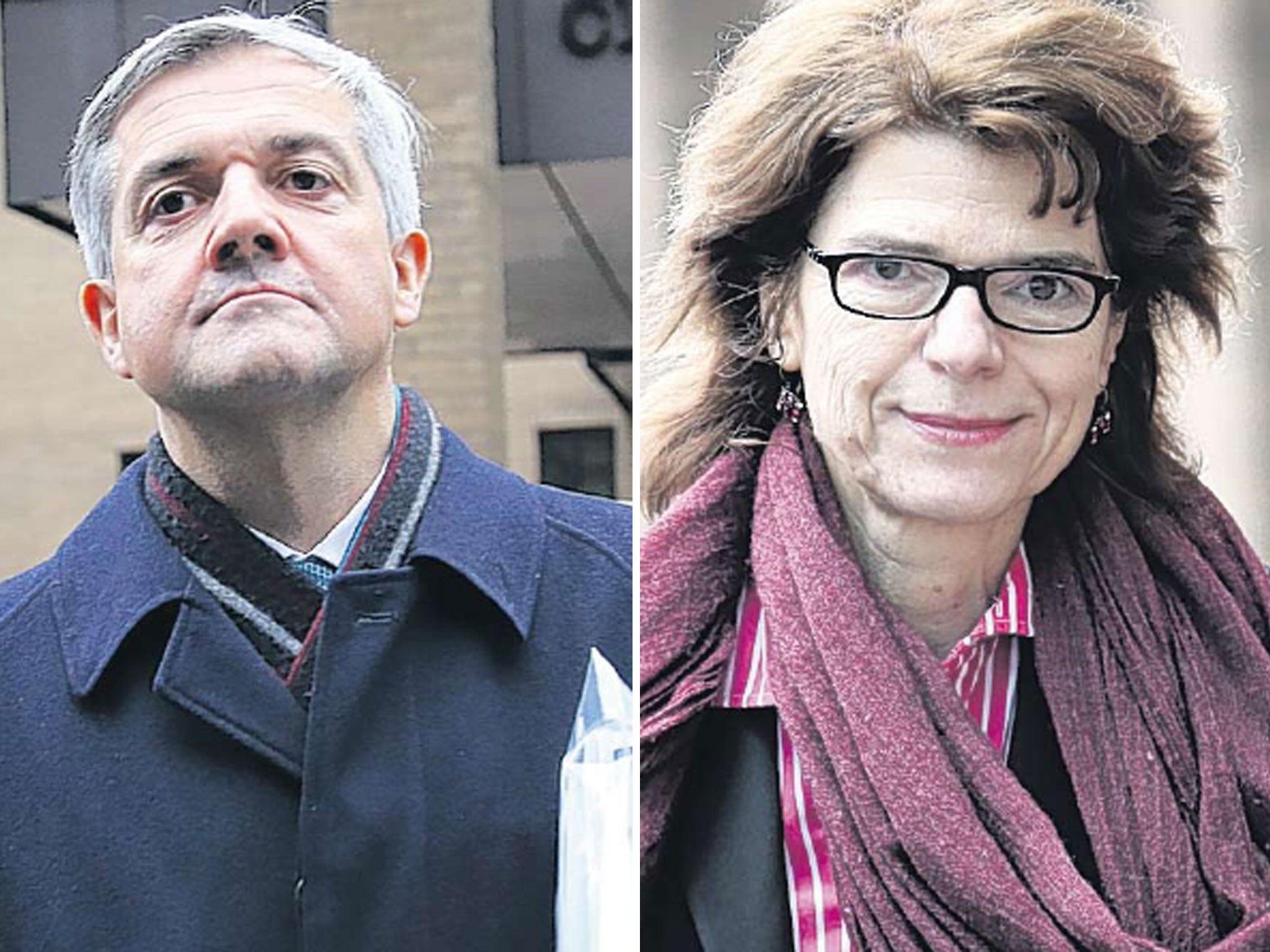Pryce guilty: The ups and downs of the ultimate power couple

They were the ultimate power couple: ferociously clever, frighteningly ambitious and with an upward trajectory of success. One of them wanted to be chancellor, had a highly-paid and glittering career, and was a regular fixture on the news channels talking about the euro crisis. The other one was Chris Huhne.
With a CV that has included joint head of the UK's government economic service and top jobs in the City (despite saying that she had put her career on the backburner for her husband), Ms Pryce, 60, was a woman whom it paid to know. After leaving her senior position with the civil service, she had embarked on early discussions with the Liberal Democrats about moving into politics, she told her first trial.
Even after the highly-public break-up of her marriage after 26 years, she returned to the Liberal Democrat party conference in 2010 where Vince Cable - her former boss - descended from the platform with a show of support and a kiss on both cheeks. She had been there to support him when he made his first conference speech as a minister, when he upbraided bankers as gamblers and spivs.
If that marked her move into the political top division - though she claimed her reported ambition to be a chancellor was a joke - her reactions to what she saw as negative briefing against her following her conference appearance led her down the path to the dock at Southwark Crown Court.
Vasiliki Courmouzis was born in Athens in 1952 and came to Britain to study at the London School of Economics while Greece was labouring under a series of right-wing military governments, which affected the family's tourism business.
While working as a telephonist and guiding French and German tourists in London, she completed her degree in economics. She married for the first time while an undergraduate and had two daughters, but the marriage ended nine years later. She kept her first husband's surname: Pryce.
Her career was already on a sharp upward curve. Initially working for a bank that was part of RBS, she rose to chief economist, and took further jobs for Exxon Europe and then chief economist and partner at Peat Marwick, which became KPMG.
She met Chris Huhne, like herself an economist, about a year after her first marriage ended, while he was working as a leader writer with the Guardian. He was already politically active for the SDP, standing and losing the first of two consecutive parliamentary elections in 1983.
They married in 1984 - after she briefly had second thoughts and broke off their engagement - in the Greek Orthodox Cathedral in London. The couple had three children, two boys and a girl. He moved to the Independent newspaper before carving out a successful career in the City. But his yearning for political office never left him, his wife said.
Ms Pryce had strongly opposed her husband's decision to become an MEP - a position he held for six years from 1999 - because of the impact that it would have on the family. At the time, she was travelling around with her high pressure job at KPMG and she negotiated an advisory job that meant less travelling.
She was head-hunted and moved jobs and also set up the Good Corporation - advising companies on ethical behaviour. She was swiftly head-hunted again, this time by the government, and joined the then Department for Trade and Industry in August 2002 and become joint head of the Government Economic Service in 2007. She was given a CB for services to economics in 2009.
Her plaudits increased with her positions. Baron Stern of Brentford spoke of his "confidence in her judgment and integrity"; Sir John Scarlett, the former MI6 chief, found her "a person of clear integrity"; and John Gieve, the former deputy governor of the Bank of England, said that she was open and honest who was a "first-class economist, one of the best commentators and analysts working in the UK today".
The Huhne-Pryce townhouse in Clapham became a renowned political salon with annual post-Davos parties as he rose up the political ladder. They continued after Huhne left their house and her own profile continued to grow. She made regular television appearances commenting on the global economic crisis in the slightly accented English of the self-proclaimed "fiery Greek". English is her fourth language. She wrote a book on the inevitability of crisis in Greece. She has also written for this newspaper.
However, she was also a woman on mission of revenge. She was briefing journalists about her husband as part of her stated aim to "nail" her husband. She did so "albeit that she was frightened for herself and her own safety if that was to happen," according to legal documents.
In one interview after the marriage break-up she talked about her ambition to enter politics despite her experience being married to a prominent politician. "Well people lie to get whatever they want done. And they back-stab each other and all that stuff," she said. "I'm not thinking of just one person, I'm thinking of lots of people."
Further reading
Vicky Pryce convicted over Chris Huhne speeding points scam
Lib Dems 'knew Huhne had broken law months before it became public'
The e-mails between Vicky Pryce and Sunday Times reporter Isabel Oakeshott
The campaign by vengeful wife and 'batty' barrister
Trial laid bare strains in Huhne household
Marital coercion - a defence that faces major change
Debate: Is accepting points, as Vicky Pryce did, par for the course in a loving marriage?
Do you have any sympathy for Vicky Pryce?
Vicky Pryce, Chris Huhne and why this was not a criminal trial, but a divorce case by proxy
Judge praises jury for 'assiduously performing duties' after embarrassment of first trial
